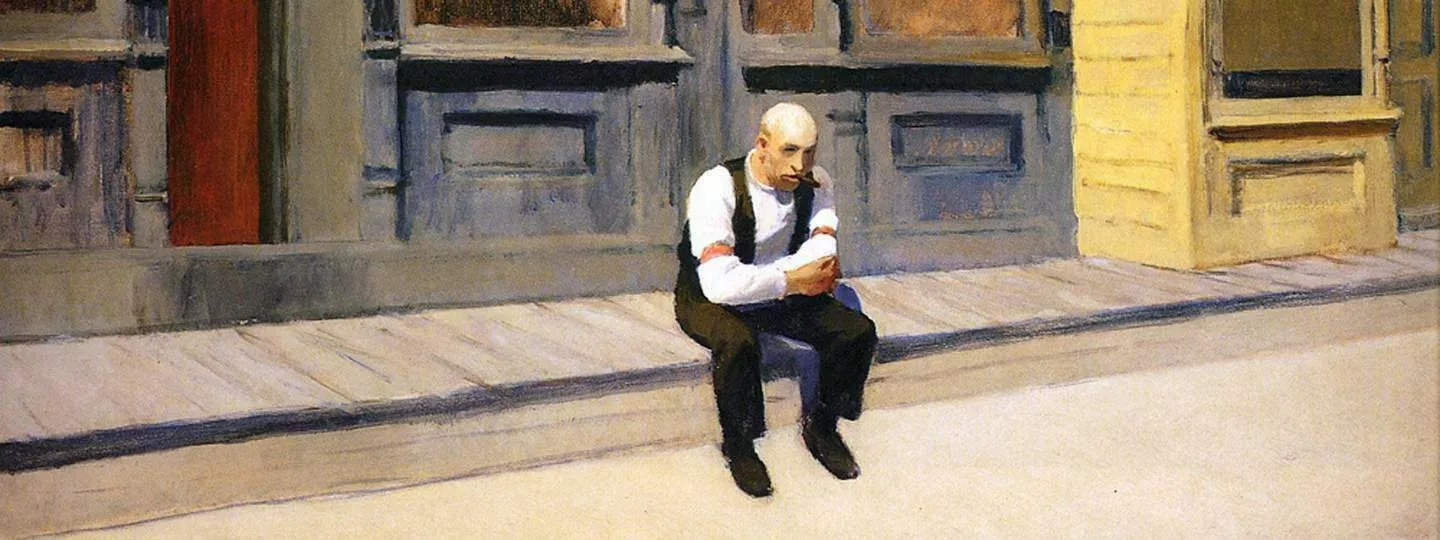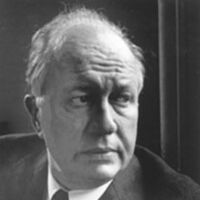
Theodore Roethke
Theodore Roethke (ret-kee; May 25, 1908 – August 1, 1963) was an American poet, who published several volumes of poetry characterized by its rhythm, rhyming, and natural imagery. He was awarded the Pulitzer Prize for poetry in 1954 for his book, The Waking, and he won the annual National Book Award for Poetry twice, in 1959 for Words for the Wind and posthumously in 1965 for The Far Field.
Theodore Roethke (ret-kee; May 25, 1908 – August 1, 1963) was an American poet, who published several volumes of poetry characterized by its rhythm, rhyming, and natural imagery. He was awarded the Pulitzer Prize for poetry in 1954 for his book, The Waking, and he won the annual National Book Award for Poetry twice, in 1959 for Words for the Wind and posthumously in 1965 for The Far Field.
Roethke was born in Saginaw, Michigan and grew up on the west side of the Saginaw River. His father, Otto, was a German immigrant, a market-gardener who owned a large local 25 acre greenhouse, along with his brother (Theodore's uncle). Much of Theodore's childhood was spent in this greenhouse, as reflected by the use of natural images in his poetry. The poet's adolescent years were jarred, however, by his uncle's suicide and by the death of his father from cancer, both in early 1923, when Theodore (Ted) was only 15. These deaths shaped Roethke's psyche and creative life.
He attended the University of Michigan, earning A.B. and M.A. degrees. He briefly attended law school before entering Harvard University, where he studied under the poet Robert Hillyer. Abandoning graduate study because of the Great Depression, he taught English at several universities, including Lafayette College, Pennsylvania State University, and Bennington College.
In 1940, he was expelled from his position at Lafayette and he returned to Michigan. Just prior to his return, he had an affair with established poet and critic Louise Bogan, who later became one of his strongest early supporters. While teaching at Michigan State University in East Lansing, he began to suffer from manic depression, which fueled his poetic impetus. His last teaching position was at the University of Washington, leading to an association with the poets of the American Northwest.
Some of his best known students included James Wright, Carolyn Kizer, Jack Gilbert, Richard Hugo, and David Wagoner.
In 1953, Roethke married Beatrice O'Connell, a former student. Like many other American poets of his generation, Roethke was a heavy drinker and susceptible, as mentioned, to bouts of mental illness. He did not inform O'Connell of his repeated episodes of depression, yet she remained dedicated to him and his work. She ensured the posthumous publication of his final volume of poetry, The Far Field, which includes the poem "Meditation at Oyster River."
In 1961, "The Return" was featured on George Abbe's album Anthology of Contemporary American Poetry on Folkways Records. The following year, Roethke released his own album on the label entitled, Words for the Wind: Poems of Theodore Roethke.
He suffered a heart attack in his friend S. Rasnics' swimming pool in 1963 and died on Bainbridge Island, Washington, aged 55. The pool was later filled in and is now a zen rock garden, which can be viewed by the public at the Bloedel Reserve, a 150-acre (60 hectare) former private estate. There is no sign to indicate that the rock garden was the site of Roethke's death.
There is a sign that commemorates his boyhood home and burial in Saginaw, Michigan. The historical marker notes in part:
Theodore Roethke (1908–1963) wrote of his poetry: The greenhouse "is my symbol for the whole of life, a womb, a heaven-on-earth." Roethke drew inspiration from his childhood experiences of working in his family's Saginaw floral company. Beginning is 1941 with Open House, the distinguished poet and teacher published extensively, receiving a Pulitzer Prize for poetry and two National Book Awards among an array of honors. In 1959 Pennsylvania University awarded him the Bollingen Prize. Roethke taught at Michigan State College, (present-day Michigan State University) and at colleges in Pennsylvania and Vermont, before joining the faculty of the University of Washington at Seattle in 1947. Roethke died in Washington in 1963. His remains are interred in Saginaw's Oakwood Cemetery.
The Friends of Theodore Roethke Foundation maintains his birthplace at 1805 Gratiot in Saginaw as a museum.
In 1995, the Seattle alley between Seventh and Eighth Avenues N.E. running from N.E. 45th Street to N.E. 47th Street was named Roethke Mews in his honor. It adjoins the Blue Moon Tavern, one of Roethke's haunts.
Critical responses
The poet Stanley Kunitz said of Roethke, "The poet of my generation who meant most to me, in his person and in his art, was Theodore Roethke."
The Poetry Foundation entry on Roethke notes early reviews of his work and Roethke's response to that early criticism:
Roethke's breakthrough book, The Lost Son, also won him considerable praise. For instance, Michael Harrington felt "Roethke found his own voice and central themes in The Lost Son and Stanley Kunitz saw a "confirmation that he was in full possession of his art and of his vision." In Against Oblivion, an examination of forty-five twentieth century poets, the critic Ian Hamilton also praised this book, writing, "In Roethke's second book, The Lost Son, there are several of these greenhouse poems and they are among the best things he wrote; convincing and exact, and rich in loamy detail."
In addition to the well-known greenhouse poems, the Poetry Foundation notes that Roethke also won praise "for his love poems which first appeared in The Waking and earned their own section in the new book [and] 'were a distinct departure from the painful excavations of the monologues and in some respects a return to the strict stanzaic forms of the earliest work,' [according to the poet] Stanley Kunitz. [The critic] Ralph Mills described 'the amatory verse' as a blend of 'consideration of self with qualities of eroticism and sensuality; but more important, the poems introduce and maintain a fascination with something beyond the self, that is, with the figure of the other, or the beloved woman.'"
In reviewing his posthumously published Collected Poems in 1966, Karl Malkoff of The Sewanee Review wrote:
Bibliography
Open House (1941)
The Lost Son and Other Poems (1948)
Praise to the End! (1951)
The Waking (1953)
Words For The Wind (1958)
I Am! Says The Lamb (1961)
Party at the Zoo" (1963) (A Modern Masters Book for Children, illustrated by Al Swiller)
The Far Field (1964)
Dirty Dinky and Other Creatures: Poems for Children (1973)
On Poetry and Craft: Selected Prose and Craft of Theodore Roethke (Copper Canyon Press, 2001)
Straw for the Fire: From the Notebooks of Theodore Roethke, 1943-63 (1972; Copper Canyon * Press, 2006) (selected and arranged by David Wagoner)
References
Wikipedia - http://en.wikipedia.org/wiki/Theodore_Roethke


